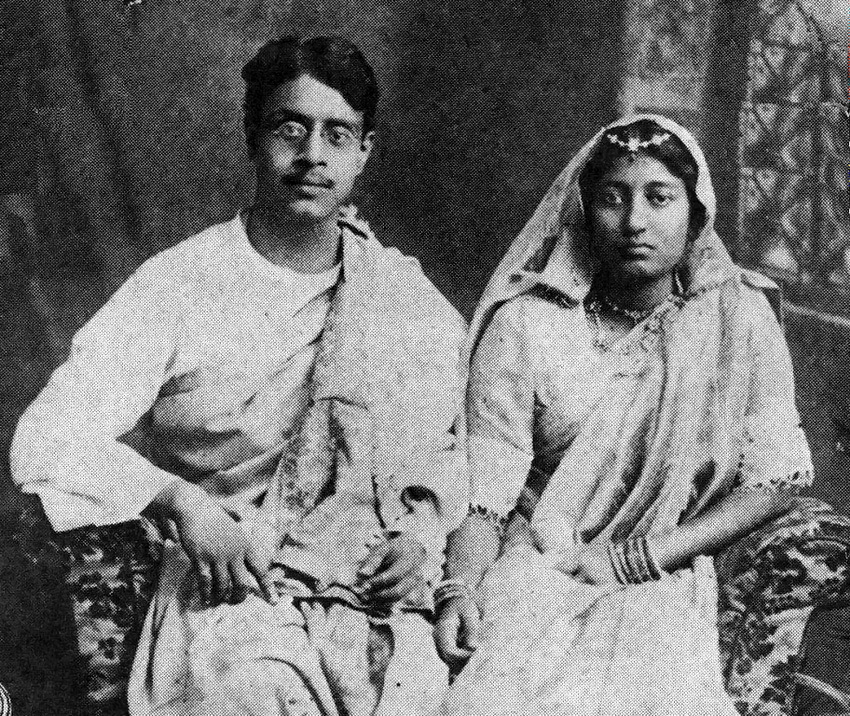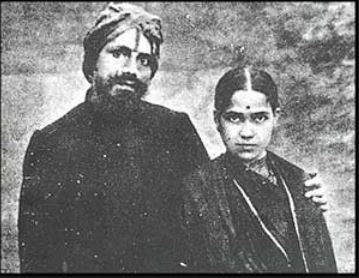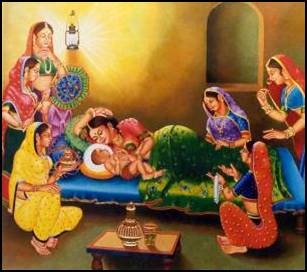|
1921 In India
Events in the year 1921 in India. Incumbents * Emperor of India – George V * Viceroy of India – Frederic Thesiger, 1st Viscount Chelmsford * Viceroy of India – The Earl of Reading (from 2 April) Events * National income – 25,337 million * June – the Madras province declared in a judgement that women also have the right to vote * August - Malabar rebellion commenced. * November - The Prince of Wales, later King Edward VIII, arrives in India. Upon his arrival in Bombay there is widespread agitation. He was greeted with empty streets (The agitation was non violent). * 19 November - Prince of Wales riots * 23 December – Visva-Bharati University is inaugurated. Law * 8 April – Permanent Advisory Council of Princes inaugurated; Council of State and Legislative Assembly inaugurated. *Maintenance Orders Enforcement Act Births And Deaths January to June *9 January – Lister Sinclair, Indian-Canadian broadcaster and playwright (died 2006) *21 January – Jaswant Sing ... [...More Info...] [...Related Items...] OR: [Wikipedia] [Google] [Baidu] |
Emperor Of India
Emperor or Empress of India was a title used by British monarchs from 1 May 1876 (with the Royal Titles Act 1876) to 22 June 1948, that was used to signify their rule over British India, as its imperial head of state. Royal Proclamation of 22 June 1948, made in accordance with thIndian Independence Act 1947, 10 & 11 GEO. 6. CH. 30.'Section 7: ...(2)The assent of the Parliament of the United Kingdom is hereby given to the omission from the Royal Style and Titles of the words " Indiae Imperator " and the words " Emperor of India " and to the issue by His Majesty for that purpose of His Royal Proclamation under the Great Seal of the Realm.'). According to this Royal Proclamation, the King retained the style and titles 'George VI by the Grace of God, of Great Britain, Ireland and the British Dominions beyond the Seas King, Defender of the Faith'''Indian Independence Act 1947'' (10 & 11 Geo. 6. c. 30) The image of the emperor or empress was used to signify British authority—his or ... [...More Info...] [...Related Items...] OR: [Wikipedia] [Google] [Baidu] |
Satyajit Ray
Satyajit Ray (; 2 May 1921 – 23 April 1992) was an Indian director, screenwriter, documentary filmmaker, author, essayist, lyricist, magazine editor, illustrator, calligrapher, and music composer. One of the greatest auteurs of film-making, Ray is celebrated for works including ''The Apu Trilogy'' (1955–1959), ''The Music Room'' (1958), ''The Big City'' (1963) and ''Charulata'' (1964). Ray was born in Calcutta to nonsense rhyme author Sukumar Ray. Starting his career as a commercial artist, Ray was drawn into independent film-making after meeting French filmmaker Jean Renoir and viewing Vittorio De Sica's Italian neorealist film ''Bicycle Thieves'' (1948) during a visit to London. Ray directed 36 films, including feature films, documentaries and shorts. Ray's first film, ''Pather Panchali'' (1955) won eleven international prizes, including the inaugural Best Human Document award at the 1956 Cannes Film Festival. This film, along with ''Aparajito'' (1956) and ... [...More Info...] [...Related Items...] OR: [Wikipedia] [Google] [Baidu] |
Barelwi
The Barelvi movement ( ur, بَریلوِی, , ), also known as Ahl al-Sunnah wa'l-Jamaah (People of the Prophet's Way and the Community) is a Sunni revivalist movement following the Hanafi and Shafi'i school of jurisprudence, with strong Sufi influences and with over 500-600 million followers in South Asia and in parts of Europe, America and Africa. It is a broad Sufi-oriented movement that encompasses a variety of Sufi orders, including the Chistis, Qadiris, Soharwardis and Naqshbandis. The movement drew inspiration from the Sunni Sufi doctrines of Shah Abdur Rahim (1644-1719) founder of Madrasah-i Rahimiyah and father of Shah Waliullah Dehlawi, Shah Abdul Aziz Muhaddith Dehlavi (1746 –1824) and Fazl-e-Haq Khairabadi (1796–1861) founder of the Khairabad School. It emphasizes personal devotion to God and the Islamic prophet Muhammad, adherence to Sharia, and Sufi practices such as veneration of saints. They are called Sunni Sufis. Ahmed Raza Khan Barelvi (1856–192 ... [...More Info...] [...Related Items...] OR: [Wikipedia] [Google] [Baidu] |
Sunni
Sunni Islam () is the largest branch of Islam, followed by 85–90% of the world's Muslims. Its name comes from the word '' Sunnah'', referring to the tradition of Muhammad. The differences between Sunni and Shia Muslims arose from a disagreement over the succession to Muhammad and subsequently acquired broader political significance, as well as theological and juridical dimensions. According to Sunni traditions, Muhammad left no successor and the participants of the Saqifah event appointed Abu Bakr as the next-in-line (the first caliph). This contrasts with the Shia view, which holds that Muhammad appointed his son-in-law and cousin Ali ibn Abi Talib as his successor. The adherents of Sunni Islam are referred to in Arabic as ("the people of the Sunnah and the community") or for short. In English, its doctrines and practices are sometimes called ''Sunnism'', while adherents are known as Sunni Muslims, Sunnis, Sunnites and Ahlus Sunnah. Sunni Islam is sometimes referre ... [...More Info...] [...Related Items...] OR: [Wikipedia] [Google] [Baidu] |
Ahmed Rida Khan
Ahmed Raza Khan, commonly known as Aala Hazrat, Ahmed Raza Khan Barelvi, or Ahmed Rida Khan in Arabic, (14 June 1856 CE or 10 Shawwal 1272 AH – 28 October 1921 CE or 25 Safar 1340 AH), was an Islamic scholar, jurist, mufti, philosopher, theologian, ascetic, Sufi, poet, and mujaddid in British India. He wrote on law, religion, philosophy and the sciences, and because he mastered many subjects in both rational and religious sciences, Francis Robinson, one of the leading Western scholars of South Asian Islam, considers him to be a polymath. He was reformer in north India who wrote extensively in defense of Muhammad and popular Sufi practices and became the leader of a movement called "Ahl-i Sunnat wa Jamàat". He influenced millions of people, today the movement has around 200 million in the region. Biography Family Ahmed Raza Khan Barelvi's father, Naqi Ali Khan, was the son of Raza Ali Khan. Ahmed Raza Khan Barelvi belonged to the Barech tribe of Pushtuns. The Barech fo ... [...More Info...] [...Related Items...] OR: [Wikipedia] [Google] [Baidu] |
1882 In India
Events in the year 1882 in India. Incumbents *Empress of India – Queen Victoria * Viceroy of India – George Robinson, 1st Marquess of Ripon Events * National income - 4,278 million Law *Powers Of Attorney Act *Transfer Of Property Act *Presidency Small Cause Courts Act *Code Of Civil Procedure *Indian Trust Act *Indian Easements Act *Documentary Evidence Act (British statute) *Reserve Forces Act (British statute) Births *1 July – Bidhan Chandra Roy, second Chief Minister of West Bengal (d.1962). *11 December – Subramanya Bharathi, poet, independence fighter and reformer (d. 1921). Deaths *6 January – Bharatendu Harishchandra, writer and poet (b.1850). India India, officially the Republic of India (Hindi: ), is a country in South Asia. It is the seventh-largest country by area, the second-most populous country, and the most populous democracy in the world. Bounded by the Indian Ocean on the so ... Years of the 19th century in India {{india-his ... [...More Info...] [...Related Items...] OR: [Wikipedia] [Google] [Baidu] |
Subramanya Bharathi
C. Subramania Bharathi Birth name: C. Subramaniyan, the person's given name: Subramaniyan, father's given name: Chinnaswami. (C. Subramaniyan by the prevalent patronymic initials as prefix naming system in Tamil Nadu and it is Subramaniyan Chinnaswami by the patronymic suffix naming system.) Bharathi is a conferred title meaning blessed by the goddess of learning. His name became C. Subramania Bharathi and he is also widely known mononymously as Bharathi. (In this article, the subject is referred using his title Bharathi because subject is not known without his title. (Permitted in WP per Wikipedia:Naming conventions (Indic)#Titles and honorifics)) (IPA: ; born C. Subramaniyan 11 December 1882 – 11 September 1921) was a Tamil writer, poet, journalist, Indian independence activist, social reformer and polyglot. He was bestowed the title "Bharathi" for his excellence in poetry. He was a pioneer of modern Tamil poetry and is considered one of the greatest Tamil literary figure ... [...More Info...] [...Related Items...] OR: [Wikipedia] [Google] [Baidu] |
Swaminarayan
Swaminarayan (IAST: ', 3 April 1781 – 1 June 1830), also known as Sahajanand Swami, was a yogi and Asceticism, ascetic, who is believed by followers to be a manifestation of God Krishna, or as the highest Theophany, manifestation of Brahman, Purushottam, and around whom the Swaminarayan Sampradaya developed. In 1800, he was initiated into the ''Uddhav'' ''sampradaya'' by his guru, Swami Ramanand, and was given the name Sahajanand Swami. Despite opposition, in 1802 Ramanand handed over the leadership of the Uddhav Sampraday to him before his death. According to the Swaminarayan-tradition, Sahajanand Swami became known as Swaminarayan, and the Uddhav Sampraday as the Swaminarayan Sampradaya, after a gathering in which he taught the Swaminarayan Mantra to his followers. He emphasized "moral, personal, and social betterment," and ''ahimsa'', and is also remembered within the sect for undertaking reforms for women and the poor, and performing non-violent yajna, yajñas (f ... [...More Info...] [...Related Items...] OR: [Wikipedia] [Google] [Baidu] |
BAPS
Bochasanwasi Akshar Purushottam Swaminarayan Sanstha (BAPS; ) is a Hindu denomination within the Swaminarayan Sampradaya. It was formed in 1905 by Yagnapurushdas (Shastriji Maharaj) following his conviction that Swaminarayan remained present on earth through a lineage of gurus starting with Gunatitanand Swami. Since 1971, under the leadership of Pramukh Swami Maharaj, the BAPS has grown strongly. As of 2019, BAPS has 44 shikharbaddha mandirs and more than 1,200 Hindu temple, mandirs worldwide that facilitate practice of this doctrine by allowing followers to offer devotion to the murtis of Swaminarayan, Gunatitanand Swami, and their successors. BAPS mandirs also feature activities to foster culture and youth development. Many devotees view the mandir as a place for transmission of Hindu values and their incorporation into daily routines, family life, and careers. BAPS also engages in a host of humanitarian and charitable endeavors through BAPS Charities, a separate non-profit ... [...More Info...] [...Related Items...] OR: [Wikipedia] [Google] [Baidu] |
Pramukh Swami Maharaj
Pramukh Swami Maharaj (born Shantilal Patel; ordained Narayanswarupdas Swami; 7 December 1921 – 13 August 2016) was the guru and Pramukh, or president, of the Bochasanwasi Akshar Purushottam Swaminarayan Sanstha (BAPS), a major branch of the Swaminarayan Sampradaya, a Hindu denomination. BAPS regards him as the fifth spiritual successor of Swaminarayan, following Gunatitanand Swami, Bhagatji Maharaj, Shastriji Maharaj, and Yogiji Maharaj. He was believed by his followers to be in constant communion with Swaminarayan, and ontologically, the manifestation of Akshar, the eternal abode of Swaminarayan. He received initiation as a Hindu Swami in 1940 from Shastriji Maharaj, the founder of BAPS, who later appointed him as President of BAPS in 1950. Yogiji Maharaj declared Pramukh Swami Maharaj to be his spiritual successor and guru of BAPS, a role he commenced in 1971. As president of BAPS, he had overseen the growth of BAPS from an organization centered in Gujarat, India, to on ... [...More Info...] [...Related Items...] OR: [Wikipedia] [Google] [Baidu] |
Dhulipala Seetharama Sastry
Dhulipala Sitarama Sastry (24 September 1921 – 13 April 2007), known mononymously by the surname Dhulipala, was an Indian actor and thespian, known for his works predominantly in Telugu cinema. He was noted for playing mythological roles, particularly the role of Shakuni. He began his acting career at the young age of 13 and went on to work in about 300 films. He shot to fame with '' Bhishma'' and '' Sri Krishna Pandaveeyam'', acting alongside N. T. Rama Rao. Life and career Born on September 24, 1921, to Sankarayya and Ratnamma of Dachepalli village in Palnadu taluk of Guntur, Andhra Pradesh, he dropped out of school after Class. 8th and spent a year at Sankara Vidyalayam, Bapatla, studying Vedas. Subsequently, he worked as a clerk for an advocate. Simultaneously entering the stage, initially portraying female characters. He was introduced to film industry by his preceptor Mr. Gayudu (1927-2005), who was a famous actor, director, writer, singer and music director, make-u ... [...More Info...] [...Related Items...] OR: [Wikipedia] [Google] [Baidu] |
Devarakonda Balagangadhara Tilak
Devarakonda Balagangadhara Tilak (1 August 1921 – 1 July 1966) was an Indian poet, novelist and short story writer. Early life Tilak was born on 1 August 1921 in the village of Mandapaka in the Tanuku Taluk district. He completed his Intermediate at AVN College Visakhapatnam and joined Loyola College, Chennai (then Madras), but had to cease his studies due to health issues. He established the Vigjnana Parishad in Tanuku (later renamed Sahiti Sarovaram) and pursued literary activities. Tilak wrote his first story at the age of 11, which is said to have been published in the Madhuri Magazine. At the age of 16, he started writing poetry and developed his unique writing style. His most famous work, ''Amrutham Kurisina Ratri'', was translated into English as ''The Night the Nectar Rained'' by Velchala Kondal Rao. ''The Night of Nectar'' was translated by B Indira. He died on 1 July 1966 at the age of 44 years. Career His first anthology, ''Prabhatamu-Sandhya'' (1945), w ... [...More Info...] [...Related Items...] OR: [Wikipedia] [Google] [Baidu] |






